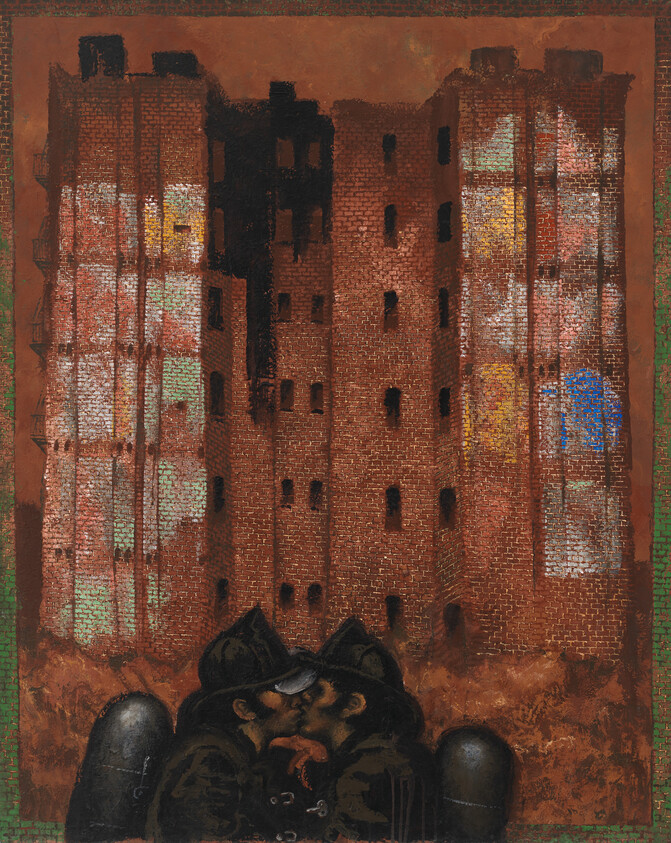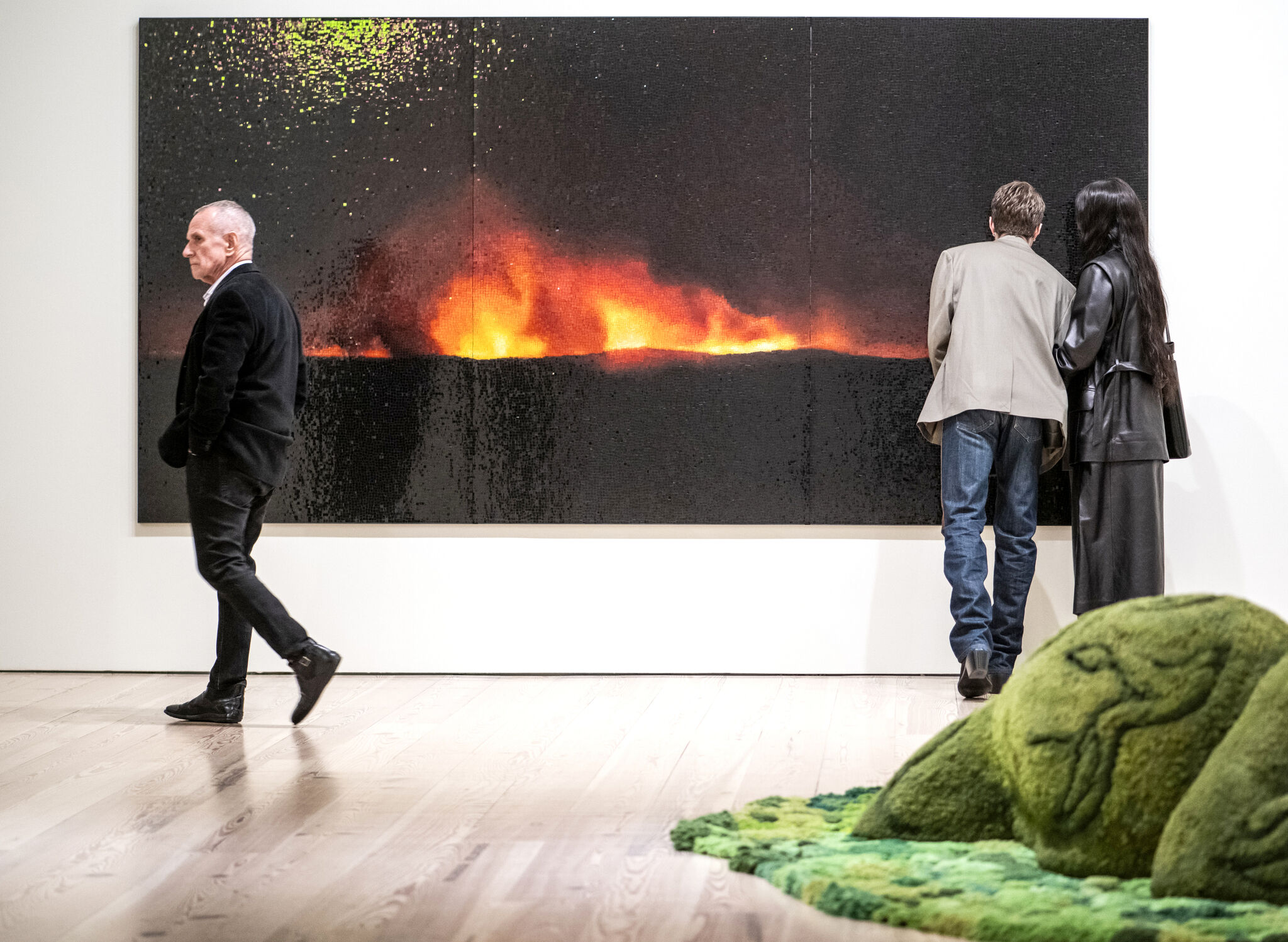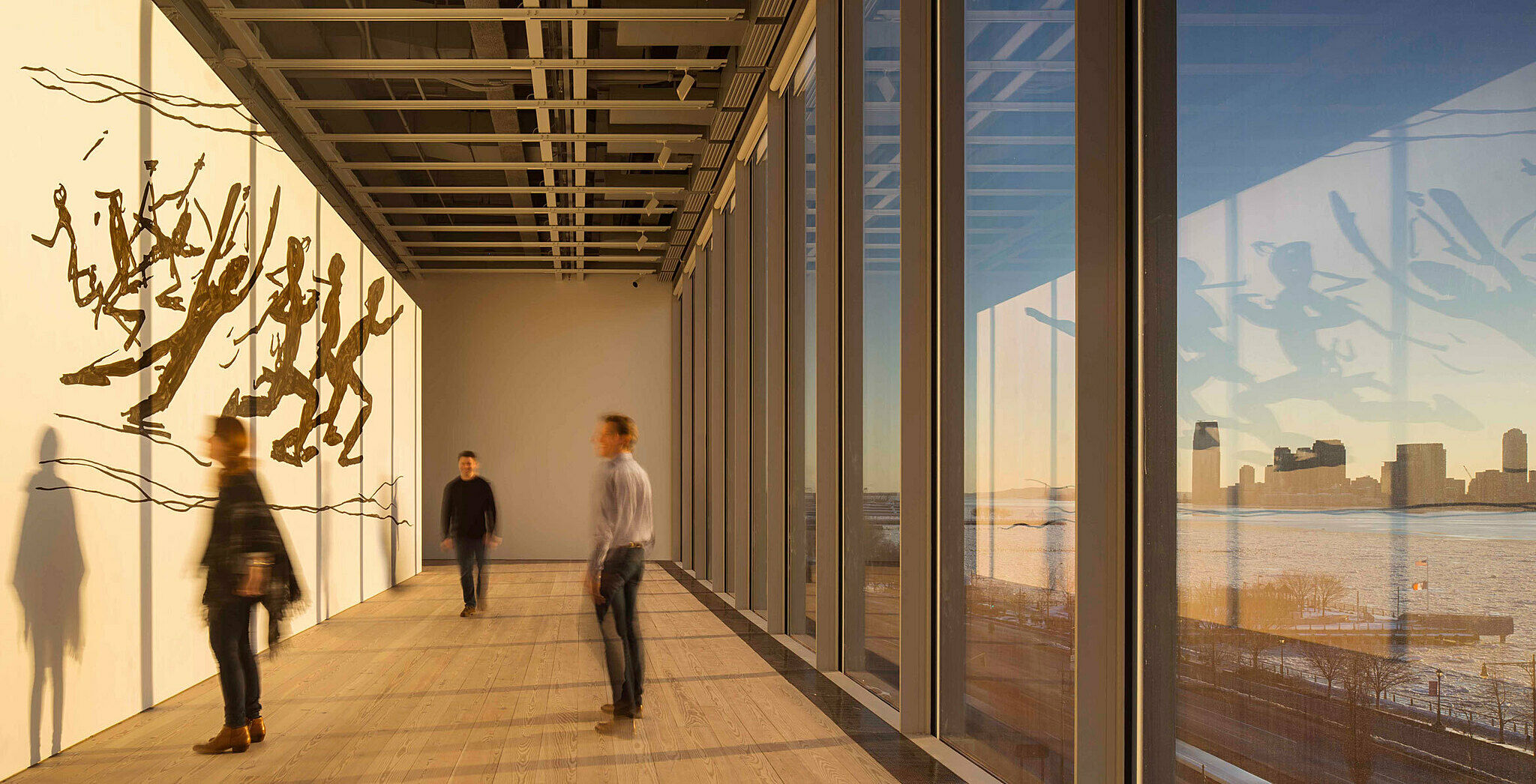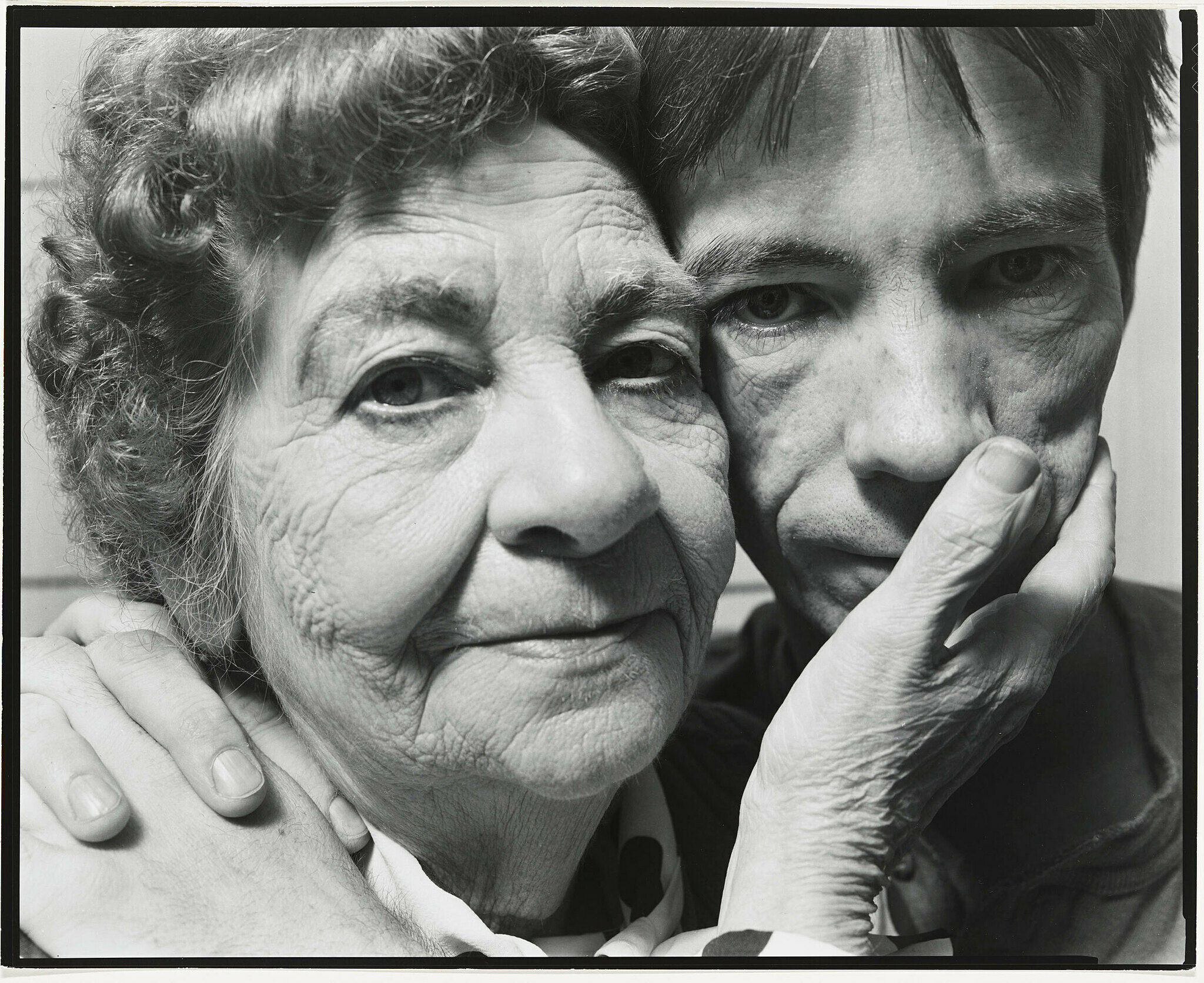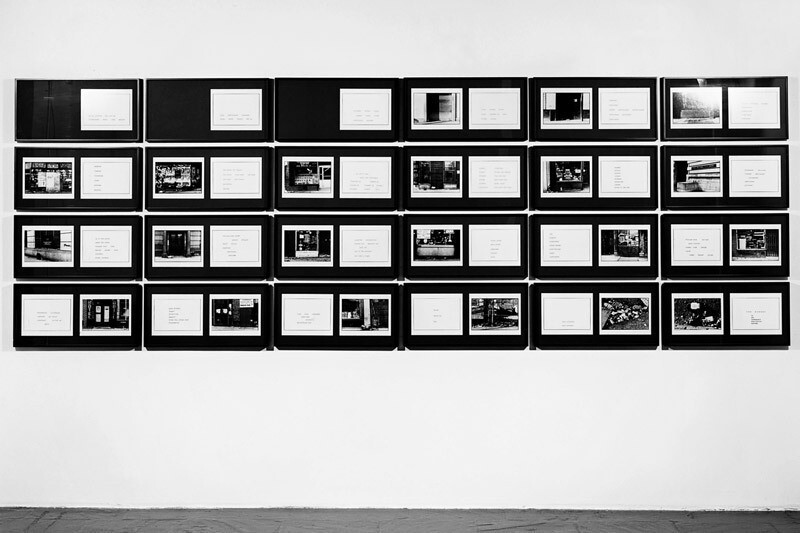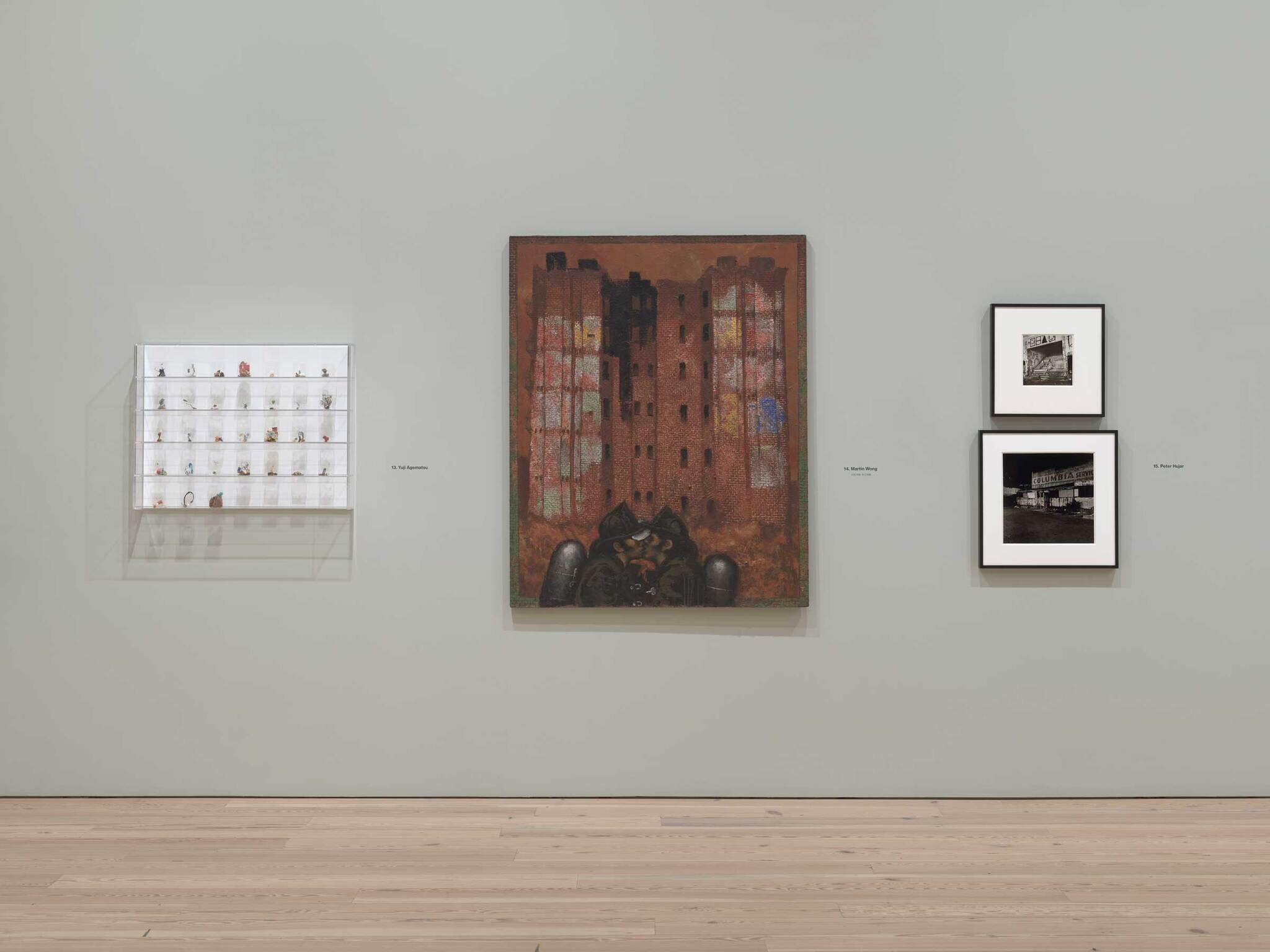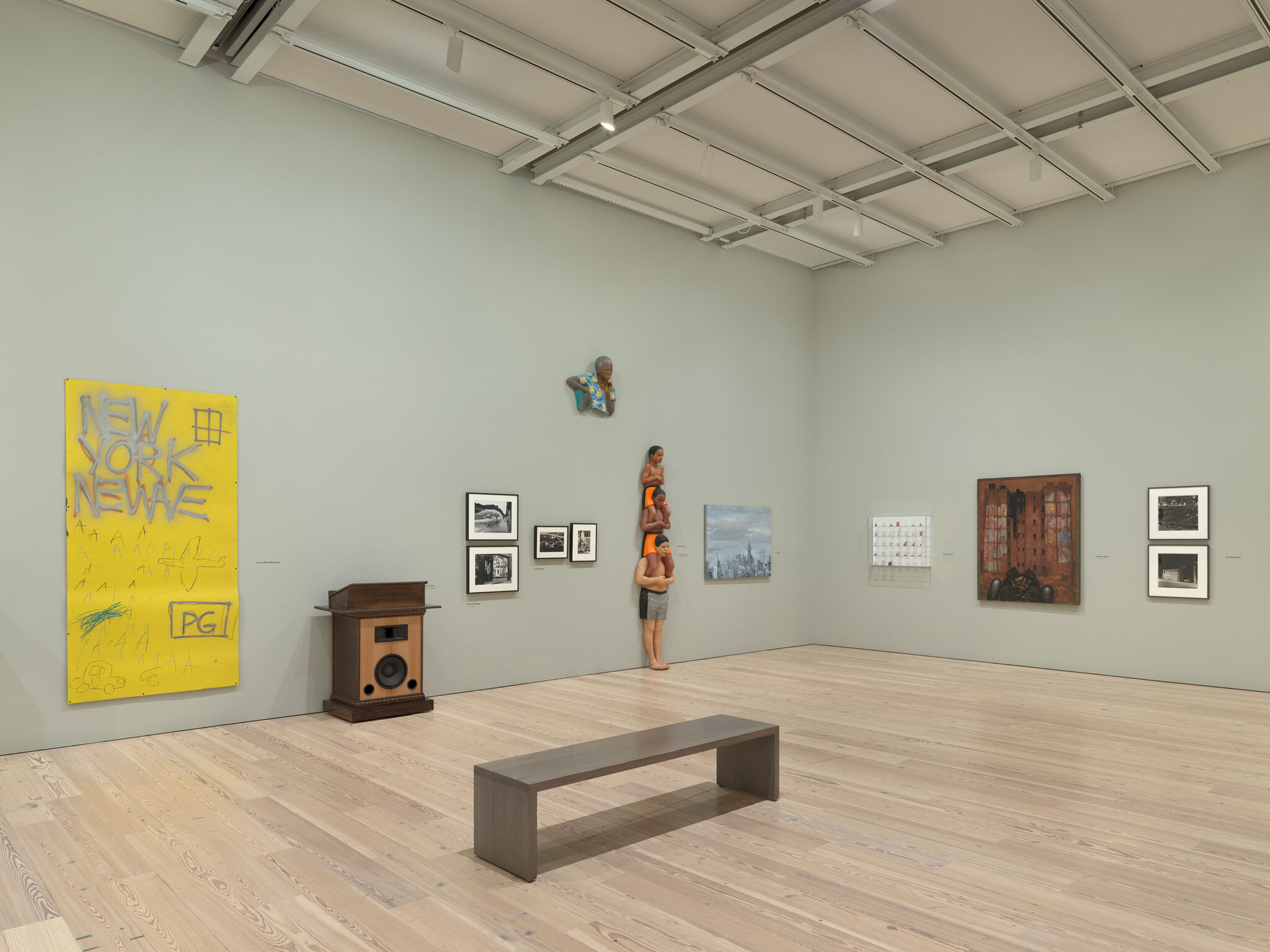In 1981, Martin Wong moved from San Francisco to New York’s Lower East Side, an area known as “Loisaida” by its predominantly Hispanic residents. He began to chronicle the neighborhood’s people, run-down buildings, and storefronts with a straightforward, naturalistic approach, reminiscent of the Ashcan School painters of the early twentieth century and the urban realists who succeeded them in the 1930s. Like Paul Cadmus and Reginald Marsh, among others, Wong infused his “realism” with healthy doses of fantasy and desire. In Big Heat, a typical brick tenement of the Lower East Side is the backdrop for a striking image of two firemen kissing. The ethereal sensations of romance are contrasted with the stark physicality of the tenement bricks, which Wong rendered with thick deposits of acrylic paint that give them a palpable presence, even to the brick-painted frame around the canvas. The passages of green spray paint on the frame of Big Heat are a reminder that Wong was an avid collector and supporter of graffiti art. He saw graffiti as evidence that art and beauty can flourish even in the most unexpected places. Big Heat is Wong’s utopian vision of hope, love, and redemption within the crumbling environs of what was once one of New York’s poorest neighborhoods.
Not on view
Date
1986
Classification
Paintings
Medium
Acrylic on linen
Dimensions
Overall: 60 1/8 × 48 1/8 in. (152.7 × 122.2 cm)
Accession number
99.89
Credit line
Purchase, with funds from the Painting and Sculpture Committee
Rights and reproductions
Courtesy of The Estate of Martin Wong and P.P.O.W. Gallery, New York, NY

